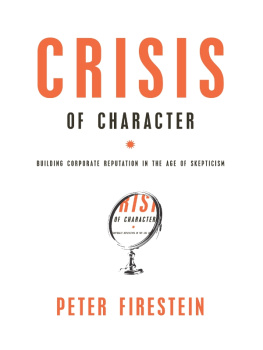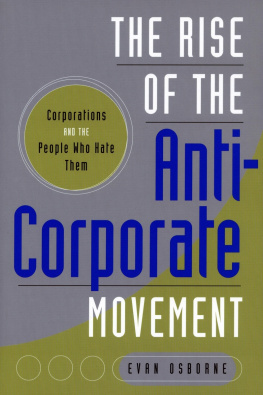ADVANCE PRAISE FOR BLACK CULTURE, INC.
Essential reading for anyone curious about why major American corporations seem so intent on giving back to Black cultural institutions. This significant book turns corporate sponsorships into objects of scrutiny, showing how they project an often disingenuous corporate image of caring not only about Black culture but also about Black people.
Ellen Berrey, author of The Enigma of Diversity
Patricia A. Banks makes a vital contribution to sociological theory, illuminating how Black cultural patronage is harnessed by corporations as a tool of financial and cultural power, often with pernicious implications for the same communities who are exploited for their diversity appeal. An important, penetrating analysis.
Linsey McGoey, author of No Such Thing as a Free Gift
As businesses and organizations strive to prove their commitments to equity and inclusion, Black Culture, Inc. provides a nuanced corrective to corporate narratives. Alongside the rich and detailed empirical analysis, the conceptualization of diversity capital is a crucial intervention with relevance across the social sciences.
Dave OBrien, author of Culture is Bad For You
Black Culture, Inc. is an important book. In connecting corporate sponsorship of Black cultural institutions with urgent issues of racial justice, Banks demonstrates the wide, and often disturbing, ramifications of corporate efforts to increase their diversity capital. Packed with scholarly insights, relevant case studies, and vivid anecdotes, this engaging book should be read by scholars, practitioners, students, and anyone interested in Black cultural institutions and how American corporations use cultural philanthropy.
Victoria D. Alexander, author of Sociology of the Arts
BLACK CULTURE, INC.
How Ethnic Community Support Pays for Corporate America
PATRICIA A. BANKS
STANFORD UNIVERSITY PRESS
Stanford, California
STANFORD UNIVERSITY PRESS
Stanford, California
2022 by the Board of Trustees of the Leland Stanford Junior University. All rights reserved.
No part of this book may be reproduced or transmitted in any form or by any means, electronic or mechanical, including photocopying and recording, or in any information storage or retrieval system without the prior written permission of Stanford University Press.
Printed in the United States of America on acid-free, archival-quality paper
Library of Congress Cataloging-in-Publication Data
Names: Banks, Patricia A., author.
Title: Black Culture, Inc. : how ethnic community support pays for corporate America / Patricia A. Banks.
Other titles: Culture and economic life.
Description: Stanford, California : Stanford University Press, 2022. | Series: Culture and economic life | Includes bibliographical references and index. |
Identifiers: LCCN 2021034836 (print) | LCCN 2021034837 (ebook) | ISBN 9781503606777 (cloth) | ISBN 9781503631250 (ebook)
Subjects: LCSH: Art patronageUnited States. | African American artsFinance. | Ethnic artsUnited StatesFinance. | Corporate sponsorshipUnited States. | CorporationsPublic relationsUnited States. | Social responsibility of businessUnited States.
Classification: LCC NX711.U5 B36 2022 (print) | LCC NX711.U5 (ebook) | DDC 700.89/96073dc23
LC record available at https://lccn.loc.gov/2021034836
LC ebook record available at https://lccn.loc.gov/2021034837
Cover design: Amanda Weiss
Cover imagery: Building, Adobe Stock; billboard, shutterstock
Typeset by Kevin Barrett Kane in 11/14 Minion Pro
To Cherry A. McGee Banks and James A. Banks
Table of Contents
Figures
Acknowledgments
I had the good fortune to work on this book during a residential Andrew W. Mellon Foundation Fellowship at the Center for Advanced Study in the Behavioral Sciences (CASBS) at Stanford University. During that sabbatical year, Mount Holyoke College also provided funding to support research and writing. I am grateful for assistance from archivists and other staff at the Library of Congress, Smithsonian Institution Archives, the Schomburg Center for Research in Black Culture, and the Northeastern University Archives and Special Collections. It has been such a pleasure working with Frederick F. Wherry, Jennifer C. Lena, and Marcela Maxfield on this project. As co-editors of the Culture and Economic Life Series, Fred and Jenn have been a constant fountain of encouragement and inspiration. Marcela, senior editor at Stanford University Press (SUP), provided invaluable guidance in shaping the book project through each stage. Comments from anonymous reviewers at SUP were particularly constructive for revising the manuscript.
It was incredibly enriching to spend a year learning from and with my colleagues at CASBS in 20182019. I especially enjoyed talking about art and culture with Margaret Levi and inequality and organizations with Elizabeth A. Armstrong. Discussion during and after my CASBS talk (2019) with Jerry A. Jacobs, Maya Tudor, Sherman James, Kim M. Williams, Ying-Yi Hong, Bart Bonikowski, Jennifer J. Freyd, Miriam Golden, Linda Woodhead, Kirsten Wysen, and others helped to shape the direction of the project at a pivotal time. Sally Schroeder, Mike Gaetani, and all of the CASBS staff helped to make the year a rich and fulfilling experience.
When I presented at the Sociology Department at Stanford University (2019), it was a lovely surprise to have Toms R. Jimnez, my former officemate from graduate school at Harvard, give such a warm and thoughtful introduction for the talk. Discussing my work on race and philanthropy at the University of Pennsylvania with Annette Lareau, Karyn Lacy, Sam Friedman, Brooke Harrington, Shamus Khan, Rachel Sherman, Cristobal Young, Daniel Laurison, and Elliot B. Weininger sharpened my insights about culture and inequality. It was especially meaningful to present at the Culture, Organizations, and Identities Panel at the Southern Sociological Society Annual Meeting in Atlanta, GA (2019). It was a full circle moment as Timothy J. Dowd, a co-organizer of the panel, was my faculty liaison at Emory University when I was collecting data for my dissertation on art collecting in Atlanta, and a couple of years later I started working with Vaughn Schmutz, the other co-organizer of the panel, as co-editor-in-chief at Poetics.
Participating in the Race in the Marketplace (RIM) Research Network and attending the first 2017 Race in the Marketplace Forum at the Kogod School of Business at American University has been foundational in my continuing to pursue a research agenda addressing how race and markets influence one another. At the conference I connected and reconnected with scholars, such as Frederick F. Wherry, David K. Crockett, Cassi Pittman Claytor, Corey D. Fields, Sonya Grier, and Anthony Kwame Harrison, whose research shapes my thinking about race, culture, and identity. Conversations with Arlene Dvila over the past few years have also informed my understanding of the intersections between race, culture, and markets. I especially appreciate the insightful feedback about the project from its inception from my colleagues at Mount Holyoke CollegeEleanor R. Townsley, Kenneth H. Tucker, Ayca Zayim, and others. Thanks also to Sedem Akposoe for research assistance. Being in conversation with Kimberly Juanita Brown, Aneeka Ayanna Henderson, and other members of The Dark Room: Race and Visual Culture Faculty Seminar has given me the opportunity to consider African American culture and identity from a range of disciplinary perspectives.
Comments and questions at the following talks and panels were especially generative: the Sociology Department at the University of California, Berkeley (2019); the Sociology Department at Stanford University (2019); the Center for Advanced Study in the Behavioral Sciences at Stanford University (2019); the ASA Consumers and Consumption Mini-Conference at Rutgers University, Camden (2018); the Elites session at the Eastern Sociological Society Annual Meeting (2020); the Culture, Organizations, and Identities Panel at the Southern Sociological Society Annual Meeting (2019); the Center for Visual Culture at Bryn Mawr College (2021); the Willson Center for Humanities and Art and the Institute for African American Studies at the University of Georgia (2021); and the Department of Sociology and Anthropology at Mount Holyoke College (2019).










